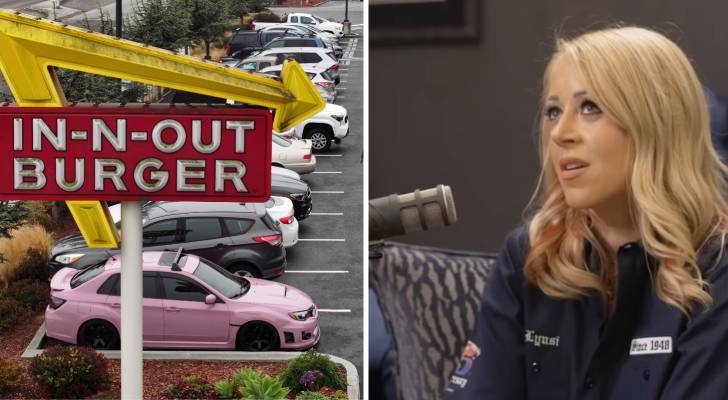
In-N-Out’s red palm trees and “fresh, never frozen” burgers are as California as it gets. Since Harry and Esther Snyder opened the first location in 1948, the family owned chain has built an empire without ever straying far from its West Coast roots.
But now, CEO Lynsi Snyder — the founders’ granddaughter — is packing up her family and part of the business for a move out of state. As In-N-Out ramps up its expansion across the southeast, Snyder says the shift makes sense.
While California will remain the heart of operations, the company is building a second headquarters in Franklin, Tennessee, set to open next year.
Don’t miss
- Thanks to Jeff Bezos, you can now become a landlord for as little as $100 — and no, you don’t have to deal with tenants or fix freezers. Here’s how
- I’m 49 years old and have nothing saved for retirement — what should I do? Don’t panic. Here are 6 of the easiest ways you can catch up (and fast)
- Robert Kiyosaki warns of a ‘Greater Depression’ coming to the US — with millions of Americans going poor. But he says these 2 ‘easy-money’ assets will bring in ‘great wealth’. How to get in now
“Most of our stores are still going to be here in California, but it will be wonderful having an office out there, growing out there,” Snyder said in a recent interview on the Relatable podcast.
Palm trees don’t pay the bills
In-N-Out may be expanding, but the move to Tennessee is less about abandoning California and more about adapting to a changing business climate. While the company promises its California roots run deep, plans are already in place to phase out its Irvine headquarters by 2030 — a shift that underscores the growing challenges of doing business in the Golden State.
"There’s a lot of great things about California, but raising a family is not easy here. Doing business is not easy here," Snyder said, echoing a sentiment that’s led to a wave of corporate relocations.
Between 2018 and 2021, more than 350 companies moved their headquarters out of California, according to research by Lee E. Ohanian of the Hoover Institution and Joseph Vranich, a Texas-based business relocation expert. Many were drawn to states with lower taxes, lighter regulations and friendlier business environments — areas where California has failed to compete.
For Snyder, the frustrations go beyond policy.
During the pandemic, state regulations forced the temporary closure of one San Francisco location. And in 2024, In-N-Out closed its Oakland restaurant after 18 years, citing rising crime in the area. The closure was particularly notable as it was the company’s first permanent shutdown in its 77-year history, despite the location still turning a profit.
Read more: Want an extra $1,300,000 when you retire? Dave Ramsey says this 7-step plan ‘works every single time’ to kill debt, get rich in America — and that ‘anyone’ can do it
Keeping the West Coast identity
In-N-Out’s cult-favorite menu might spark national cravings, especially from eager East Coast fans, but the company remains firm in its commitment to staying regional.
"Florida has begged us and we’re still saying no. East Coast states – we’re still saying no," Snyder said.
That doesn’t mean the burger chain isn’t growing. The majority of employees from its Irvine headquarters will reportedly relocate to Tennessee or move to the company’s Baldwin Park, California, office. The first Tennessee restaurant is set to open in 2026, with plans to roll out 35 locations across the state in the coming years.
The strategy seems to be paying off. The average In-N-Out location generates an estimated $4.5 million in annual sales — nearly double that of a typical McDonald’s at $2.6 million, according to Forbes.
Since taking the reins at In-N-Out, Snyder has doubled down on sustainable growth, staying true to the company’s core values and prioritizing quality over aggressive expansion — a formula that has kept the chain’s loyal fan base as hungry as ever.
What to read next
- You don’t have to be a millionaire to gain access to this $1B private real estate fund. In fact, you can get started with as little as $10 — here’s how
- Here are 5 ‘must have’ items that Americans (almost) always overpay for — and very quickly regret. How many are hurting you?
- Accredited investors can now buy into this $22 trillion asset class once reserved for elites – and become the landlord of Walmart, Whole Foods or Kroger without lifting a finger. Here’s how
- Rich, young Americans are ditching the stormy stock market — here are the alternative assets they’re banking on instead
Stay in the know. Join 200,000+ readers and get the best of Moneywise sent straight to your inbox every week for free. Subscribe now.
This article provides information only and should not be construed as advice. It is provided without warranty of any kind.


